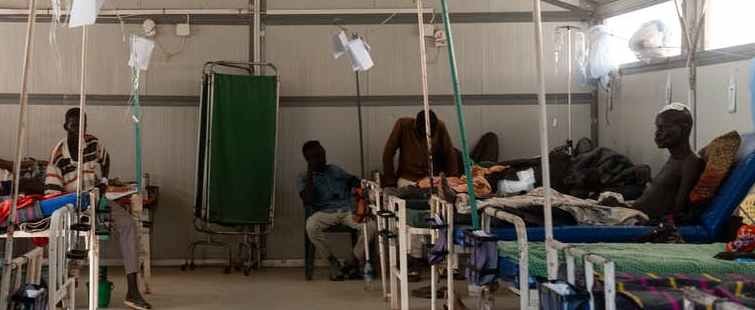The international medical charity Médecins Sans Frontières/Doctors without Borders (MSF) said it had received a mass influx of wounded patients in Jonglei State and the Greater Pibor area.
The came after intense conflict between large groups of Lou Nuer and Murle fighters in Jonglei State and the Greater Pibor Administrative Area over the past month.
The fighting has caused significant casualties and the displacement of thousands of families.
In a press statement extended to Radio Tamazuj this morning, MSF said its medical teams have received a mass influx of 83 wounded patients in Pieri and Lankien areas of Jonglei State between 9-13 March.
The international organization added that its medical teams have also treated 45 gunshot wounds in Pibor over the past month.
“In Pieri we received 68 wounded people in less than 12 hours,” said Istifanus Chindong Damulak, MSF Medical Team Leader.
He added, “It was a massive influx of critical patients, with serious gunshot and stab wounds. In Lankien, we treated a seven months pregnant woman who lost her baby after her abdomen and groin were slashed with a blade and a 10-year-old girl who was stabbed several times.”
MSF further said access to healthcare in the area remains a considerable challenge, with many people having to walk long distances and in some cases for several days to reach medical facilities.
It pointed out that the most serious cases were referred by plane to the MSF hospital in the Protection of Civilians (PoC) site in Bentiu, where they underwent surgery.
“We are very worried about the extreme level of violence that some of the patients have been subjected to,” said Claudio Miglietta, MSF Head of Mission in South Sudan.
“Violence and its consequences require firstly a medical response to address the trauma. But this is not just a matter of providing medical care, it is also a protection concern, with some of the most vulnerable, including young children and pregnant women, being targeted,” he added.
According to Roderick Embuido, MSF medical coordinator in South Sudan, “the violent clashes have significantly reduced access to health care for the many thousands of people who have fled to the bush.”
“For the ones who sought shelter in the site adjacent to UNMISS and who are now crammed together in a closely confined space, the risk of outbreaks is worryingly high,” Roderick said.




